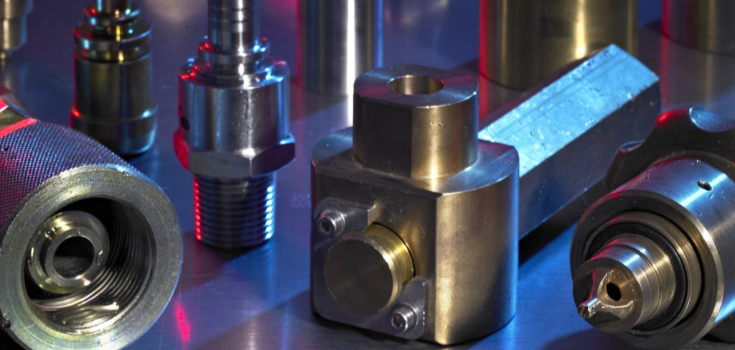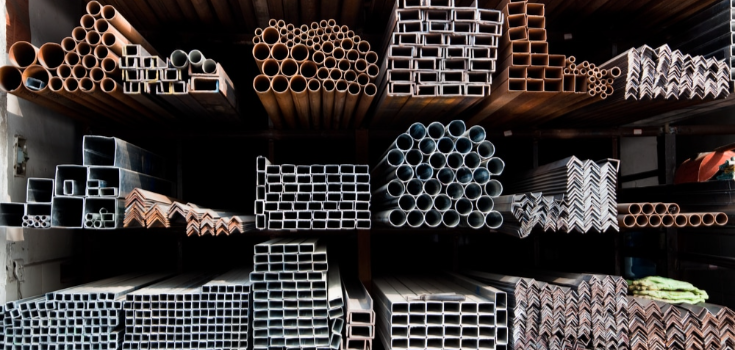The strength of metals has a significant role in construction, aerospace, automotive, and manufacturing. Materials that can survive extraordinary loads without failing. Understanding the Top 10 Strongest Metals in the World can help you to decide the right metal according to your requirements.
This blog will explain to you about their special features, different strength measures, and real-world uses. At the end, you will know that metals can fulfill your durable demands.
Properties of the Top 10 Strongest Metals in the World
Strength in metals is not a single property but an integration of factors. Engineers calculate it using different types of resistance, each critical for different applications.
Tensile Strength
Tensile strength is a measure of how much tension a metal can withstand before failing. This property is important for structures affected by stretching forces, including bridges, wires, and aircraft components. The higher the tensile strength, the better the metal is at resisting deformation and keeping its form under stress.
For example, tungsten is a material that maintains high tensile strength and hence finds application in the manufacture of rocket nozzles and in high-temperature applications.
Compressive Strength
Compressive strength indicates how well a metal survives crushing or squeezing forces. This property is very important in heavy construction, where the materials are heavily loaded. Chromium and tungsten carbide are metals with high compressive strength that retain their integrity under load.
Buckling under load becomes less likely. These metals are commonly used in building foundations, protective armor, and drilling tools and machinery.
Yield Strength

Yield strength is the stress level at which a metal starts to undergo permanent deformation. Outside yield strength, the material cannot return to its original shape. This property is instrumental in helping engineers design load-carrying components capable of doing so without forming.
Stainless steel, with good yield strength, finds applications in pipelines, ships, and pressure vessels.
Impact Strength
Impact strength indicates the ability of a metal to absorb sudden shocks or dynamic forces without fracturing. This property finds its application in almost all automotive, defense, and aerospace applications, where collisions and vibrations are common.
For example, Titanium alloys have high impact strength and absorb considerable energy. They are ideally suitable for applications in aircraft landing gear and protective armor plating.
Strongest Metals in the World
Carbon Steel

Carbon steel is a combination of iron and carbon & possesses, also remarkable strength. High tensile strength makes it commonly used for tools, construction beams, and automotive parts.
Carbon content increases hardness but might lower flexibility. Hence, striking a balance in composition is very crucial. Carbon steel is dependable, economic, and available in numerous grades for specific applications.
Steel-Iron-Nickel Alloy
The alloy of steel, iron, and nickel is a material of excellent strength and resistance. Nickel acts to improve toughness and avoid weakness at low temperatures. Iron supports the other two.
The steel-iron-nickel alloys are mainly used in aerospace, turbines, and nuclear power plants, as they are efficient at surviving high stress in extreme heat. They stay stable where regular metals will fail.
Stainless Steel
Stainless steel is well known for its strength and resistance to corrosion. It has chromium that makes a protective oxide layer against rust. Being durable and having good yield strength, stainless steel has vast applications in pipeline technology, medical equipment, and kitchenware.
Its capability to survive both stress and chemical damage makes it one of the most flexible metals in the world.
Tungsten/Tungsten Carbide

Tungsten is famous for its highest melting point of all metals and its extreme tensile strength. Tungsten carbide, which is even harder and more wear-resistant, is created by bonding tungsten to carbon.
These materials are critical in industrial cutting tools, drilling equipment, and military applications. Their unmatched durability secures reliable performance under the most extreme conditions, including high heat and pressure.
Titanium/Titanium Aluminide
Titanium is famous for its excellent strength-to-weight ratio. It is as strong as steel but about 45% lighter, which makes it useful in aerospace and medical implants. Titanium aluminide alloys bring in more strength without disturbing lightness.
These alloys resist corrosion and survive in extreme temperatures, which is why they find utility in jet engines, spacecraft, and advanced defense systems.
Magnesium Alloy
These are lightweight and strong at the same time. It makes them very important in any industry where reducing weight increases efficiency. Although not as strong as tungsten or titanium. Magnesium alloys are good under impact strengths and corrosion-resistant when treated.
Magnesium Alloys are most commonly used in automotive manufacturing, aerospace frames, and electronic casings. A combination of lightness and an adequate level of strength is gaining more importance in engineering.
Inconel

Inconel is a nickel-chromium alloy for extreme conditions. It maintains its strength and resists oxidation at high temperatures. Inconel is most commonly used in the construction of jet engines, gas turbines, and chemical processing equipment.
It makes a big difference where real safety and reliability matter because it survives heat and pressure without compromising integrity. It is one of the strongest and quality-engineered alloys nowadays.
Chromium
Chromium has high compressive strength along with good corrosion resistance. It is not as tough as tungsten or titanium, but its protective finishing and structural support become beneficial in many alloys. Chromium plating improves automotive parts, tools, and industrial machinery with durability.
Vanadium
Vanadium optimizes the strength, toughness, and wear resistance of steel when added in small amounts. It finds wide application in aerospace alloying, automotive components, and high-speed tools.
Vanadium prevents alloys from losing hardness and becoming too weak. It makes it an important matter in lightweight, high-strength materials. Its use for reinforced alloys gives it an edge in industries that require endurance against sustained stress.
Lutetium
Rare earth metal lutetium is known to be one of the heaviest and hardest elements, due to its uniqueness and cost. It is impressively stable and strong at extreme temperatures.
Lutetium mainly finds employment in specialized scientific research, modern catalysts, and some medical imaging technologies. With its properties, it places among the strongest metals, even if practical uses are limited.
Alloys vs Natural Metals

Natural metals do exist in pure forms, such as iron, titanium, or tungsten. These metals are strong and either corrosion-resistant or brittle. The alloys are combinations of metals made to improve performance. By mixing one or more elements, the engineers advance the design of alloys with an emphasis on tensile strength, corrosion resistance, or light weight.
For example, stainless steel does not rust as fast as pure iron, while Inconel performs under heat where pure nickel fails. Alloys expand the limits of natural metals.
DEK’s Wide Selection of Metals for CNC-Machined Parts
At DEK, we provide a complete range of metals modified for CNC machining. Our catalog includes carbon steel, stainless steel, titanium, Inconel, and many more. Each metal is professionally selected for providing optimal strength, durability, and precision for your parts.
If you need lightweight alloys for aerospace, wear-resistant tungsten for drilling, or corrosion-resistant stainless steel, DEK provides the exact solution in its portfolio. With our expertise, you will deliver exceptional results for complex designs and rigorous applications.
Conclusion
The top 10 strongest metals in the world shows unique properties that make them important across industries. Each of them has its unique functions, from toughness in carbon steel to strength-to-weight advantage for titanium.
Understanding tensile, compressive, yield, and impact strength allows you to choose metals wisely. Whether natural or alloyed, metals shape the backbone of modern engineering. For projects requiring precision and performance, DEK provides expert machining services with a wide selection of metals tailored to your needs.

